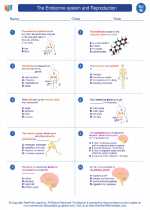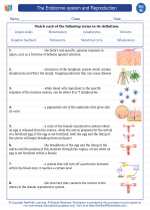Colonization
Colonization refers to the process of establishing control over a foreign land, often with the aim of settling and exploiting its resources. It involves the migration and settlement of people from one region to another, and the establishment of political and economic dominance over the indigenous population.
Causes of Colonization
- Economic Motives: Colonizers sought to exploit the natural resources of the colonized territories, such as minerals, agricultural products, and labor, for their own economic gain.
- Religious and Ideological Motives: Some colonizers were driven by a desire to spread their religious beliefs and cultural values to new territories.
- Political Ambitions: Colonization often served the geopolitical interests of the colonizing powers, allowing them to expand their territories and influence on the global stage.
- Technological Superiority: In many cases, colonizers possessed advanced technology, weaponry, and organizational systems that gave them an advantage over the indigenous populations.
Impact of Colonization
Colonization had profound and lasting effects on both the colonized societies and the colonizing powers. Some of the key impacts include:
- Cultural Exchange and Assimilation: Colonization led to the exchange of ideas, languages, and traditions between different cultures, often resulting in the assimilation of indigenous customs into the colonial societies.
- Economic Exploitation: Colonizers often extracted wealth from the colonized territories, leading to economic disparities and the impoverishment of indigenous populations.
- Political and Social Disruption: The imposition of colonial rule disrupted existing political and social structures, leading to conflict, displacement, and the marginalization of indigenous communities.
- Legacy of Injustice: Colonization left a legacy of injustice, including the exploitation of natural resources, forced labor, and the suppression of indigenous rights and autonomy.
Study Guide for Colonization
To effectively study the topic of colonization, consider the following key points:
- Understand the historical context and specific examples of colonization, such as the European colonization of the Americas, Africa, and Asia.
- Examine the motivations behind colonization, including economic, religious, and political factors.
- Analyze the impact of colonization on both the colonized societies and the colonizing powers, considering cultural, economic, and social dimensions.
- Explore the resistance and responses of indigenous populations to colonization, including forms of cultural preservation, armed resistance, and negotiation.
- Reflect on the enduring legacies of colonization and their relevance to contemporary global issues, such as indigenous rights, environmental justice, and cultural diversity.
[Colonization] Related Worksheets and Study Guides:
.◂Science Worksheets and Study Guides Eighth Grade. The Endocrine system and Reproduction
Study Guide The endocrine system and Reproduction
The endocrine system and Reproduction  Worksheet/Answer key
Worksheet/Answer key The endocrine system and Reproduction
The endocrine system and Reproduction  Worksheet/Answer key
Worksheet/Answer key The endocrine system and Reproduction
The endocrine system and Reproduction  Worksheet/Answer key
Worksheet/Answer key The endocrine system and Reproduction
The endocrine system and Reproduction  Vocabulary/Answer key
Vocabulary/Answer key The endocrine system and Reproduction
The endocrine system and Reproduction  Vocabulary/Answer key
Vocabulary/Answer key The endocrine system and Reproduction
The endocrine system and Reproduction  Vocabulary/Answer key
Vocabulary/Answer key The endocrine system and Reproduction
The endocrine system and Reproduction  Vocabulary/Answer key
Vocabulary/Answer key The endocrine system and Reproduction
The endocrine system and Reproduction  Vocabulary/Answer key
Vocabulary/Answer key The endocrine system and Reproduction
The endocrine system and Reproduction 

 Worksheet/Answer key
Worksheet/Answer key
 Worksheet/Answer key
Worksheet/Answer key
 Worksheet/Answer key
Worksheet/Answer key
 Vocabulary/Answer key
Vocabulary/Answer key
 Vocabulary/Answer key
Vocabulary/Answer key
 Vocabulary/Answer key
Vocabulary/Answer key
 Vocabulary/Answer key
Vocabulary/Answer key
 Vocabulary/Answer key
Vocabulary/Answer key
